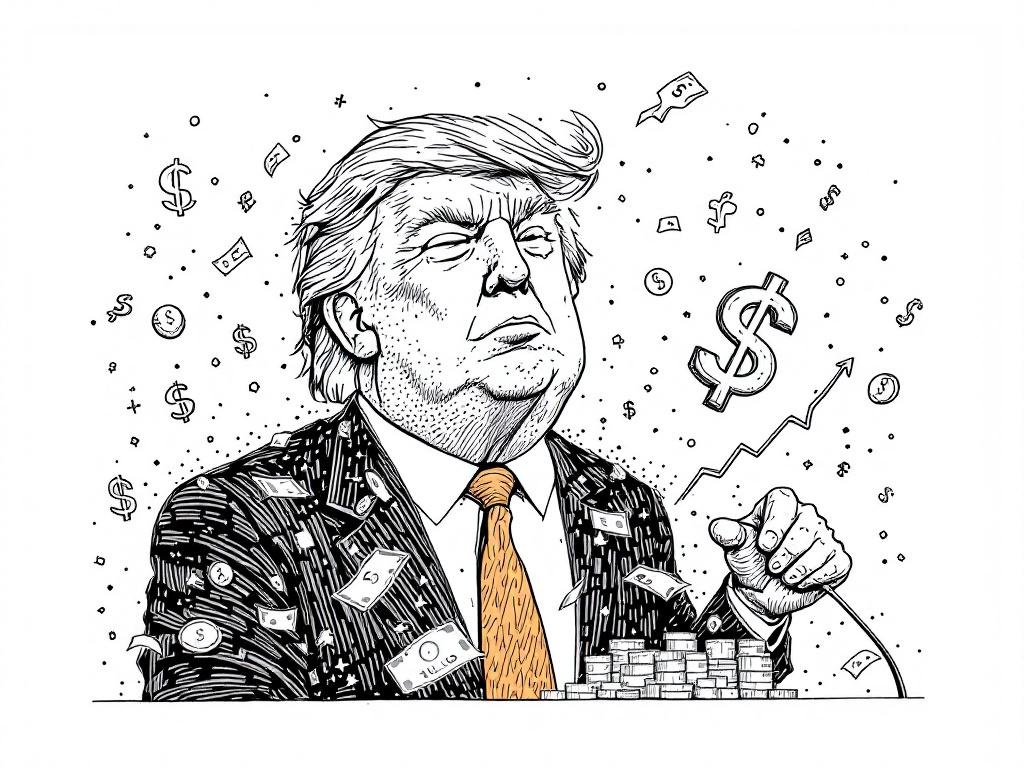Trump's Firing of BLS Chief: Political Move or Data Manipulation?

Washington, D.C., Tuesday, 5 August 2025.
The recent removal of BLS Commissioner Erika McEntarfer by President Trump, following a subpar jobs report, raises concerns about potential politicization of U.S. economic data.
New Policies and Political Implications
The Trump administration’s decision to fire Bureau of Labor Statistics (BLS) Commissioner Erika McEntarfer follows a disappointing July jobs report that underperformed expectations. Only 73,000 new jobs were added, significantly lower than the anticipated 103,000. Additionally, the BLS adjusted jobs figures from the previous months downward by approximately 260,000 positions, intensifying the administration’s dissatisfaction [1][2]. President Trump’s labeling of the job data as ‘rigged’ hints at potential motives related to political image and narrative control [2]. Political analysts suggest that this move could signify a shift towards the politicization of economic data, a concern that has been echoed by various stakeholders in the business and economic sectors [1][3].
Transparency and Methodological Concerns
Critics argue that the firing raises serious concerns about the independence and transparency of the BLS, an institution previously revered for its methodological rigor and apolitical stance [2][3]. Historically, the BLS has been a cornerstone for economic decision-making for the Federal Reserve and other key governmental and international entities. The administration’s interference is perceived as threatening this long-standing neutrality, potentially discouraging accurate and unbiased data reporting in the future [1][3]. As businesses and policymakers rely heavily on BLS data for planning and forecasting, any impact on the reliability of this data could have far-reaching consequences [3].
Economic Outcomes and Future Implications
The economic indicators under the current administration reveal a complex picture. The slow job growth and revised figures underscore challenges faced by Trump’s economic policies, which include contentious tariff implementations and tax strategies. Inflation has risen to 2.6% in June 2025 from 2.2% in April 2025, adding strain to consumer spending [4]. With GDP growth stalling at less than 1.3% during the first half of 2025, compared to 2.8% in the previous year, the broader economic landscape is fraught with uncertainty [4]. The Trump administration’s actions continue to ripple through financial markets, affecting investment and commercial sentiment both domestically and internationally [4][5].
BLS’s Path Forward
Erika McEntarfer’s dismissal has prompted a debate on the future direction of the Bureau of Labor Statistics and its ability to function without political bias. Experts like Bill Beach, a former BLS chief, have weighed in on this tumultuous period, expressing concerns that the integrity of economic data might be compromised [2]. The reshuffling within the BLS comes as part of a broader pattern of administrative changes propagated by President Trump, reflecting the intertwining of politics with bureaucratic governance [2]. As the saga unfolds, stakeholders across sectors are keenly monitoring developments, wary of how these shifts could redefine economic transparency and governance moving forward [2][3].